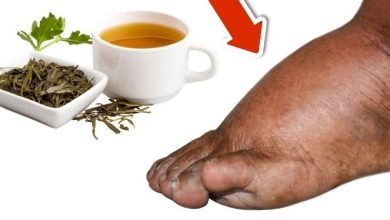
Are you looking for a natural way to support your overall health? Alfalfa might be a great addition to your wellness routine. This nutrient-rich plant has been valued for centuries for its potential health benefits. Let’s explore how alfalfa can be incorporated into a balanced lifestyle.
What is Alfalfa?
Alfalfa (Medicago sativa), often referred to as the “father of all foods,” is packed with essential vitamins, minerals, and antioxidants. It is commonly consumed in the form of sprouts, tea, or supplements and has been traditionally used for various health purposes.
Potential Health Benefits of Alfalfa
Supports Kidney and Urinary Health
Alfalfa is known to have mild diuretic properties, which means it may help support a healthy urinary system by promoting hydration and natural detoxification. However, there is no strong scientific evidence confirming that alfalfa can directly dissolve or prevent kidney stones. Staying hydrated and following a balanced diet are the most effective ways to support kidney health.
General Anti-Inflammatory Properties
Alfalfa contains plant compounds that have mild anti-inflammatory effects. While some believe it may help reduce discomfort related to inflammation, there is no conclusive evidence that it can directly treat conditions like gout. If you experience joint pain or inflammation, consulting a healthcare professional for personalized treatment options is recommended.
How to Incorporate Alfalfa into Your Diet
If you want to add alfalfa to your diet, here are a few safe and easy ways:
- Alfalfa Sprouts – Add them to salads, sandwiches, or wraps for a fresh, crunchy texture.
- Alfalfa Tea – Brew dried alfalfa leaves in hot water for a soothing herbal tea.
- Alfalfa Supplements – Available in capsules or tablets for those who prefer a concentrated dose.
Safety Considerations
While alfalfa is generally safe for most people, some individuals should exercise caution:
- People with autoimmune conditions should consult a doctor before consuming alfalfa, as it may stimulate the immune system.
- Those with hormone-sensitive conditions should be cautious since alfalfa contains phytoestrogens, which may have mild estrogen-like effects.
- Medication Interactions – Alfalfa may interact with certain medications, such as blood thinners. Always check with a healthcare provider before adding it to your routine.
Conclusion
Alfalfa is a nutrient-rich plant that can be a beneficial addition to a balanced diet. While it may support general wellness, claims about its effectiveness in treating kidney stones or gout are not scientifically proven. As with any supplement, it’s best to consult a healthcare professional before making significant dietary changes. By incorporating alfalfa safely and mindfully, you can enjoy its natural benefits as part of a healthy lifestyle. 🌿✨







